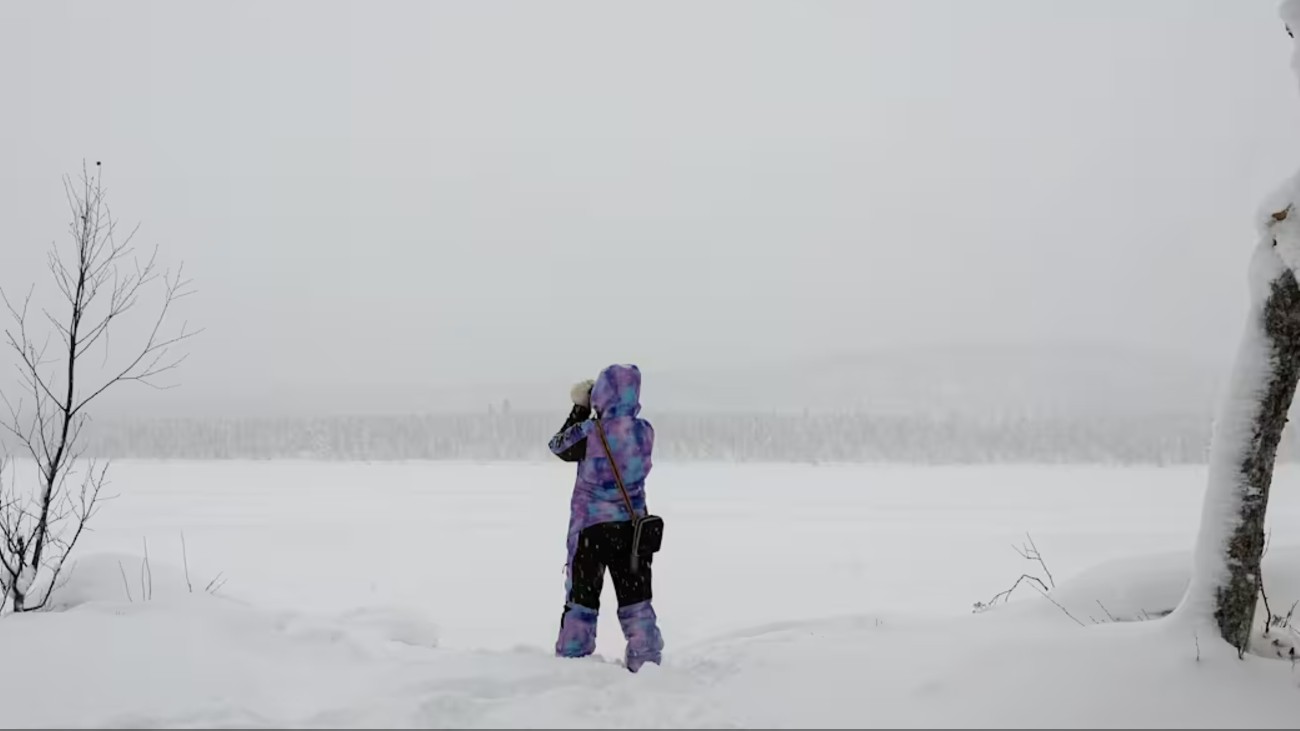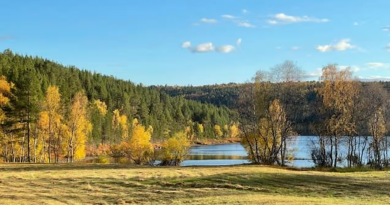Snowless Finns suffer ‘eco-grief’

The weather in Finland this autumn has been exceptional in many ways. While it was windy and rainy in Turku in the southwest, it was snowing heavily in Inari in the far north.
In the Pirkanmaa and Satakunta regions, there was heavy flooding on Tuesday, with roads cut and houses threatened by rising waters .
Northern Lapland saw record high seasonal temperatures in November, and storms with near-hurricane winds swept through half of the country.
Unusual weather and seasons seemingly out of joint can evoke a range of emotions, some of which only recently have become the subject of study.
Anne Karhu-Angeli found herself feeling uneasy about the long, warm autumn in Lapland. She considers herself a winter person through and through. In winter she is very cheerful, in summer a bit melancholy.
“Everything seemed unsettled. I had a strange feeling all the time,” she says, describing her emotions before the arrival of the first snow.
Now that it has snowed often, and heavily, in Inari, her smile is bright and her cheeks flushed from being outdoors.
“It’s just great. Snow brings light with it. It’s no longer dark and horrible. You can feel it in your body and your mind,” she says.
Eco-grief over lost landscapes
When winter is no longer the cold and snowy season of one’s past, that’s when so-called ‘eco-grief’ can take hold.
Dr. Inkeri Markkula, a researcher at the University of Lapland’s Arctic Centre, is planning an in-depth study into the phenomenon of the eco-grief caused by changing weather conditions.
By eco-grief, Markkula means the sadness experienced as a result of a sudden or even slow environmental change.
For example, the disappearance of snowy landscapes is one cause of eco-grief. It can also take the form of worry for future generations, concern about whether or not they will experience real winters.
“Eco-grief is a kind of sadness for which there are no recognised practices or forms of expression or ways of dealing with in our society. It is a grief below the surface,” Inkeri Markkula explains.
The sweet sound of snow ploughs
Dr. Markkula has conducted a preliminary survey among Finns to find out more about how they see the meaning of snow, the memories associated with it, and the feelings and thoughts that change in snowfall evokes.
“For some, snow means silence and stillness. It also increases feelings of security if the snow comes when and as expected. When you wake up to the sound of a snow plough, it can bring a sense of security,” says Markkula, describing the responses she received.
If there’s no snow plough rattling around outside during your winter morning slumber, you may start to feel a sense of sadness you can’t identify.
Markkula has found that everyone in Finland is likely to have at least one cherished memory of snow.
Everyone in southern Finland affected
People experience different forms of sadness and grief arising from environmental changes, according to Panu Pihkala, an adjunct professor at the University of Helsinki, who studies environmental emotions.
“The more you care about the thing you are losing, the stronger the effects,” he explains.
In southern Finland, seasonal changes affect everyone in some way, Pihkala believes. Many people are dealing with unpleasant emotions due to climate change, for example the lack of snow.
Of course, people are different, some are concerned about the amount of snow, others are not really interested in past or future winters.
“There is no conclusive research data on how many people in southern Finland experience environmental grief and in what form. However, there is clear evidence that there is a wide range of feelings involved,” says Pihkala.
People experiencing eco-grief are not always understood by others.
“Some people might say that the winters have not all been completely lost, and look, there is so much snow this winter, too. That can contribute to making people feel worse,” points out Pihkala.
The perfect winter day is yet to come
There has been a need for snow shovels in Inari, at least.
Anne Karhu-Angeli is now happy. She has no regrets, even though she has had to shovel a path through her yard every morning and evening.
“It’s no problem at all. We’ve waited so long for the snow to come. I’m happy to do it, even every day, and the children help,” she says.
Now that Inari is knee-deep snow, it’s time to dream again and trust that the most perfect of perfect winter days will come. For that, Anne Karhu-Angeli is awaiting the frosty days of February when the returning sun will make the snow sparkle and shine.
Related stories from around the North:
Canada: Be wary of thin ice amid mild weather conditions, says hunter in Fort Smith, N.W.T., CBC News
Finland: Finland’s roads remain hazardous following first winter storm, including Lapland, Yle News
Norway: Polar heat record. July average above 10°C, The Independent Barents Observer



